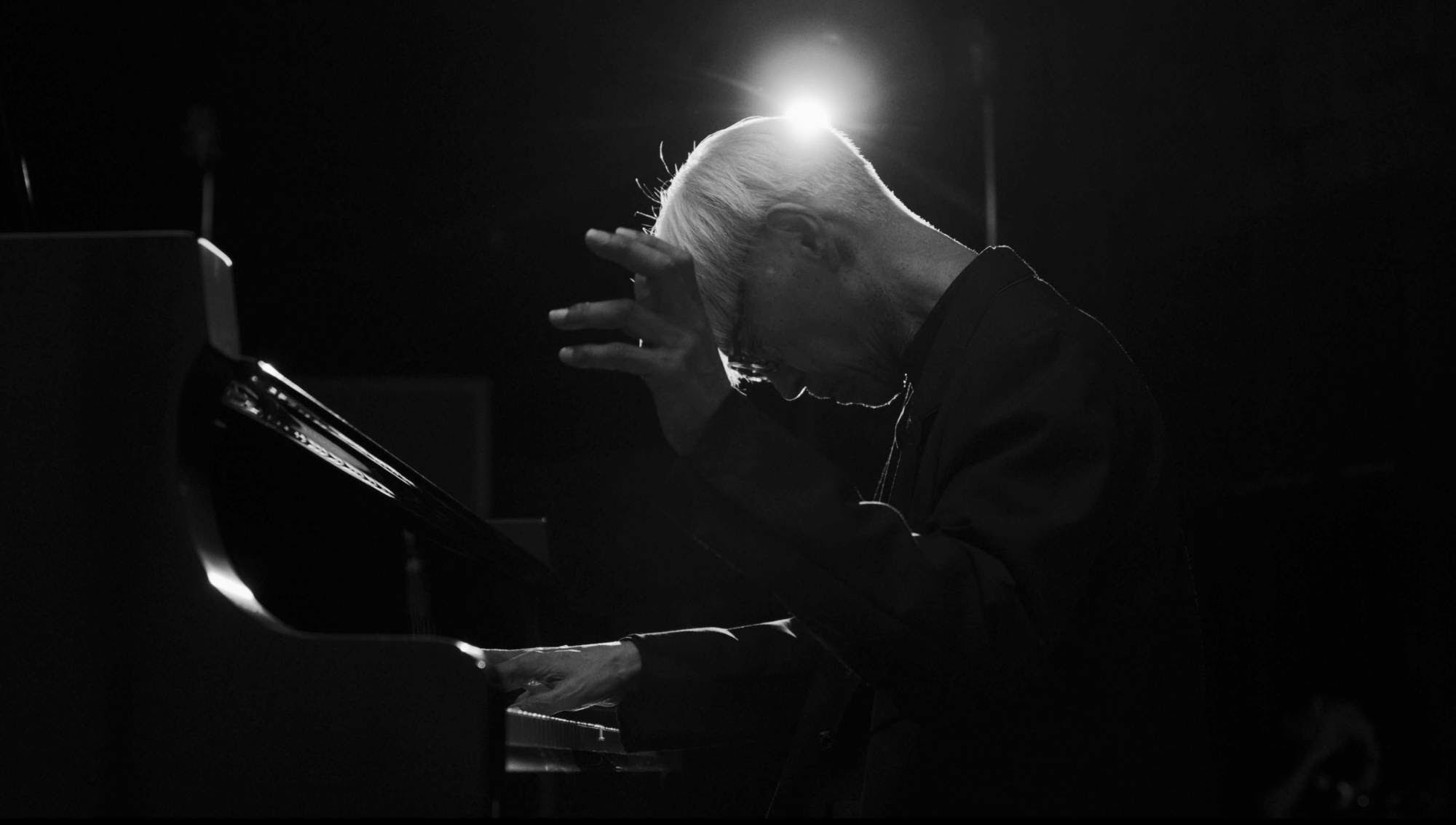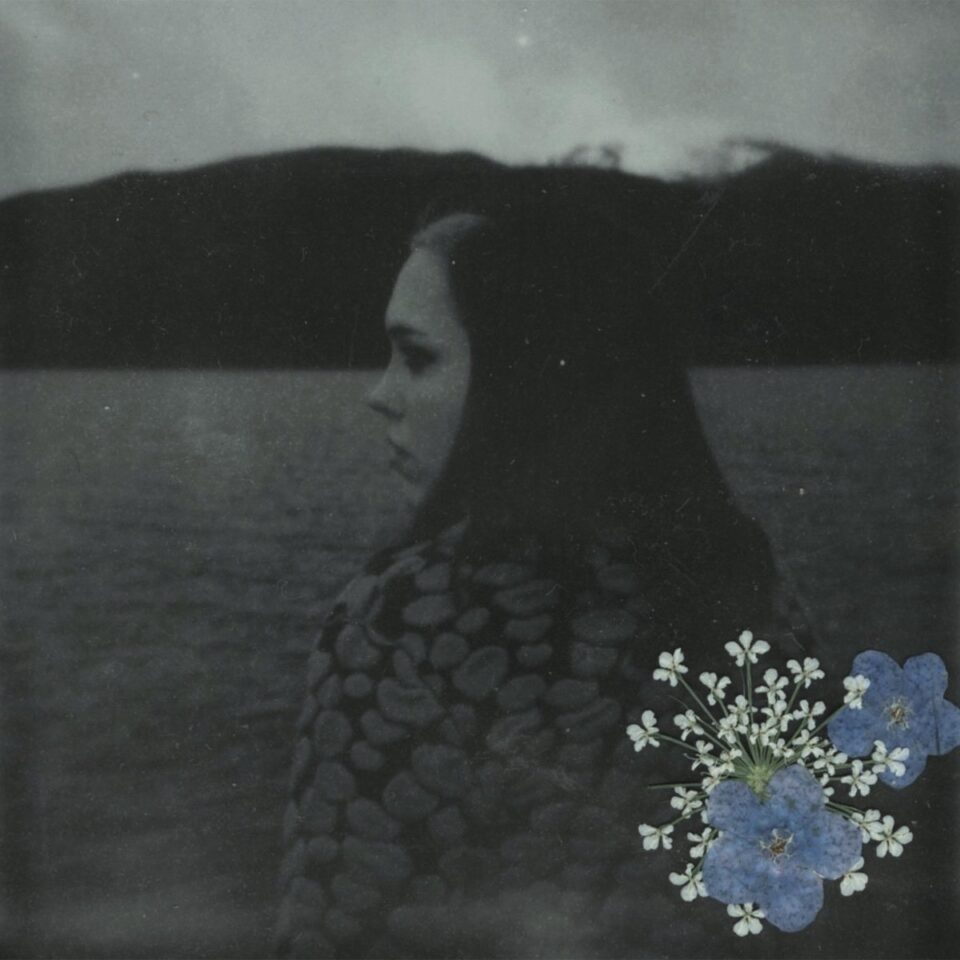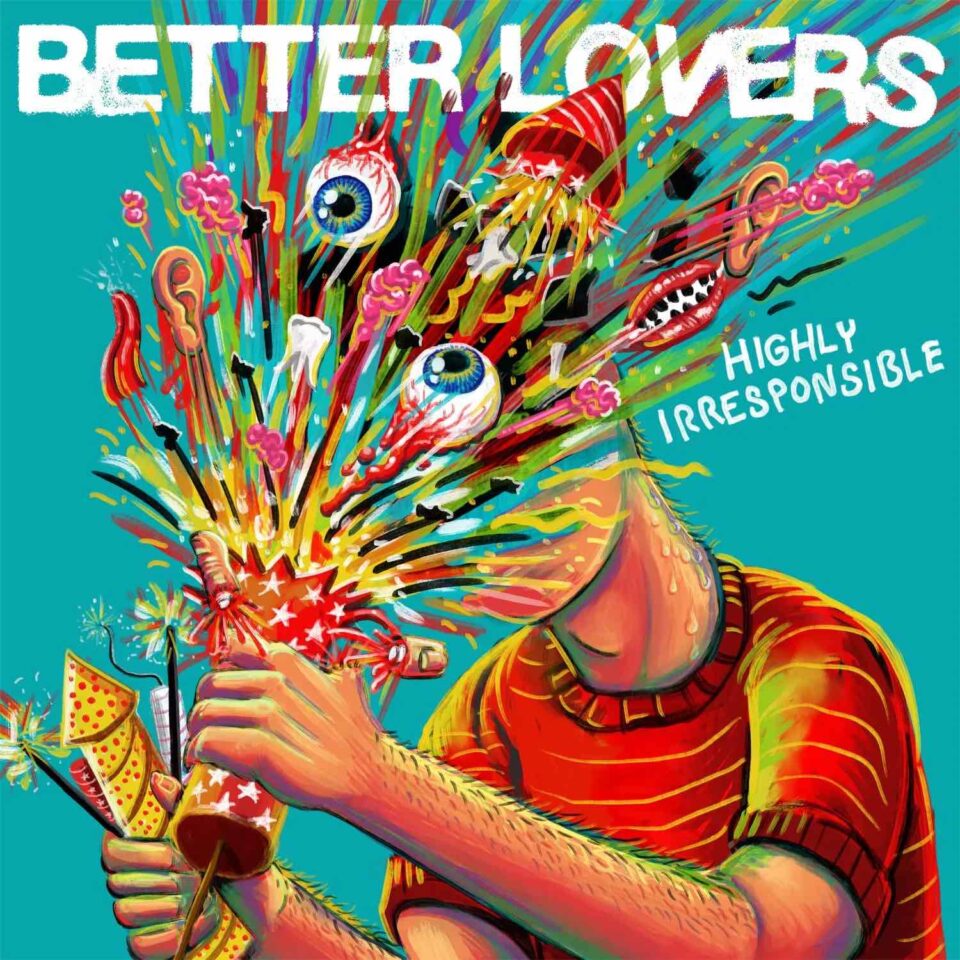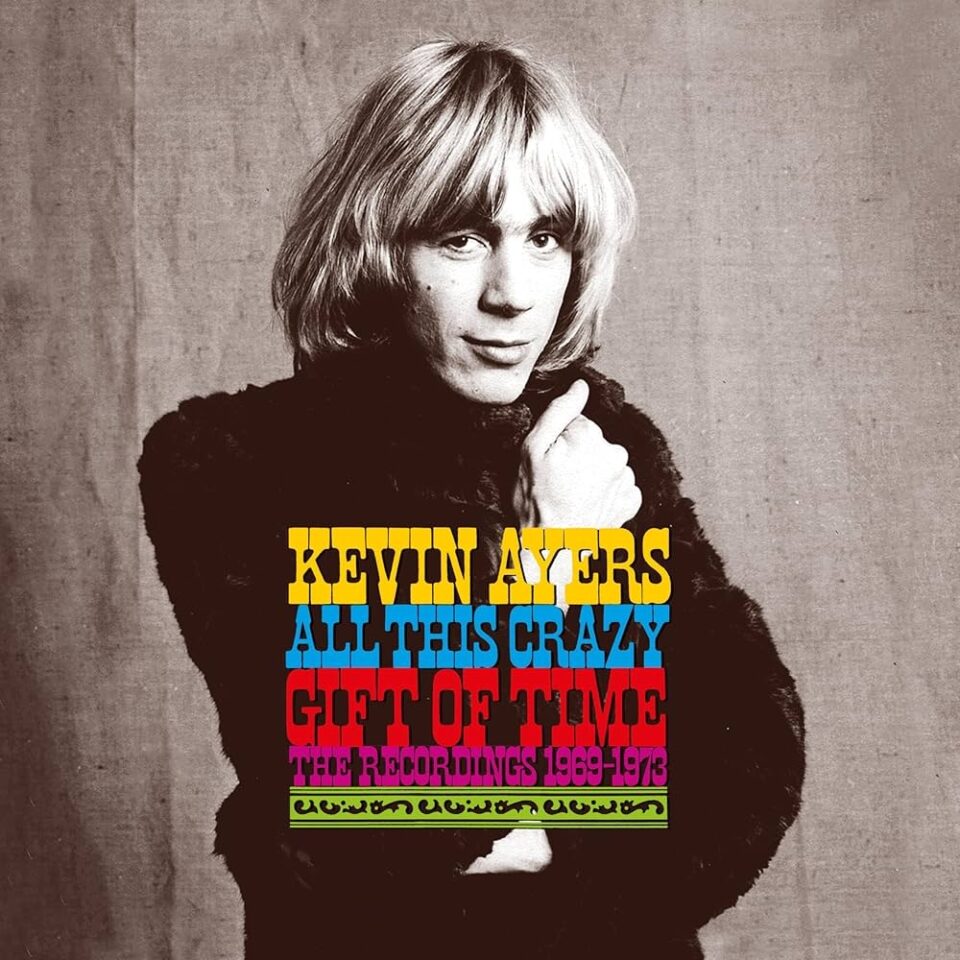From tactile, ambient-driven soundtracks such as those of The Revenant and Black Mirror: Smithereens to increasingly rare solo albums such as 2017’s async and this year’s 12, the one constant that ever-changing composer and musician Ryuichi Sakamoto has had is his label: Milan Records. That their 20-plus projects as a recording/releasing team also includes remix albums and a recent tribute disc to Sakamoto (To the Moon and Back, featuring Arto Lindsay, Thundercat, Fennesz, Dev Hynes, and David Sylvian) which follow the squiggly line that is the Japanese electro-acoustic legend’s career from synth-pop avatar as cofounder of Yellow Magic Orchestra, to actor (Merry Christmas, Mr. Lawrence, also featuring one of his finest film scores), to Oscar-winning composer (The Last Emperor).
Working with a label known for breaking rules and busting down barriers surely meant something simpatico for Sakamoto and the 45-year-old Milan label founded by Emmanuel Chamboredon, now run by his son, JC, the SVP of soundtracks and the head of Milan Records. “When my father was running Milan, he worked with Sakamoto releasing the soundtrack to Merry Christmas, Mr. Lawrence in specific territories, along with getting the rights to release his solo albums 1996 and Smoochy,” says the young Chamboredon of a relationship that has forever broken the rules for a so-called “soundtracks only” label. “By the time I got to Milan and started working with Ryuichi on The Revenant, it was a hand-in-glove fit.”
“With each listen, async changed for me... This is not a man who makes momentary streaming hits. People revisit this album regularly.”
Sakamoto’s async, his first full studio album after an initial cancer diagnosis, is a turning point in ambient music and an album that put Milan—as a releaser of new music not connected to film, television, and video game projects—on an altogether different trajectory from that of its start. “I still pinch myself that he decided to release an artist album with us,” says Chamboredon. “The first time I listened to async, when I received his demo, it was so overwhelming. There were tracks that brought about great emotions, others of which I couldn’t understand. With each listen, async changed for me. That’s why Sakamoto’s albums have such a long life beyond their initial release. This is not a man who makes momentary streaming hits. People revisit this album regularly.”
Being an artist whose health problems in the last decade are no secret to the public has meant that Sakamoto’s music, and the label that releases it, is the only portal we have into his soul. And that position is daunting for Chamboredon, a producer/executive/A&R who treasures the level of collaboration that he shares with Sakamoto. “Composers with such a long history, who have created so many surprising things—not only in film music, but his solo music and collaborations with like-minded artists—are a dream. Ryuichi Sakamoto does not fit our label. I wanted our label to fit him. So we did everything to update our game beyond releasing soundtrack albums and made sure that we were, and are, a good fit for everything that he chooses to do.”
“Ryuichi Sakamoto does not fit our label. I wanted our label to fit him.”
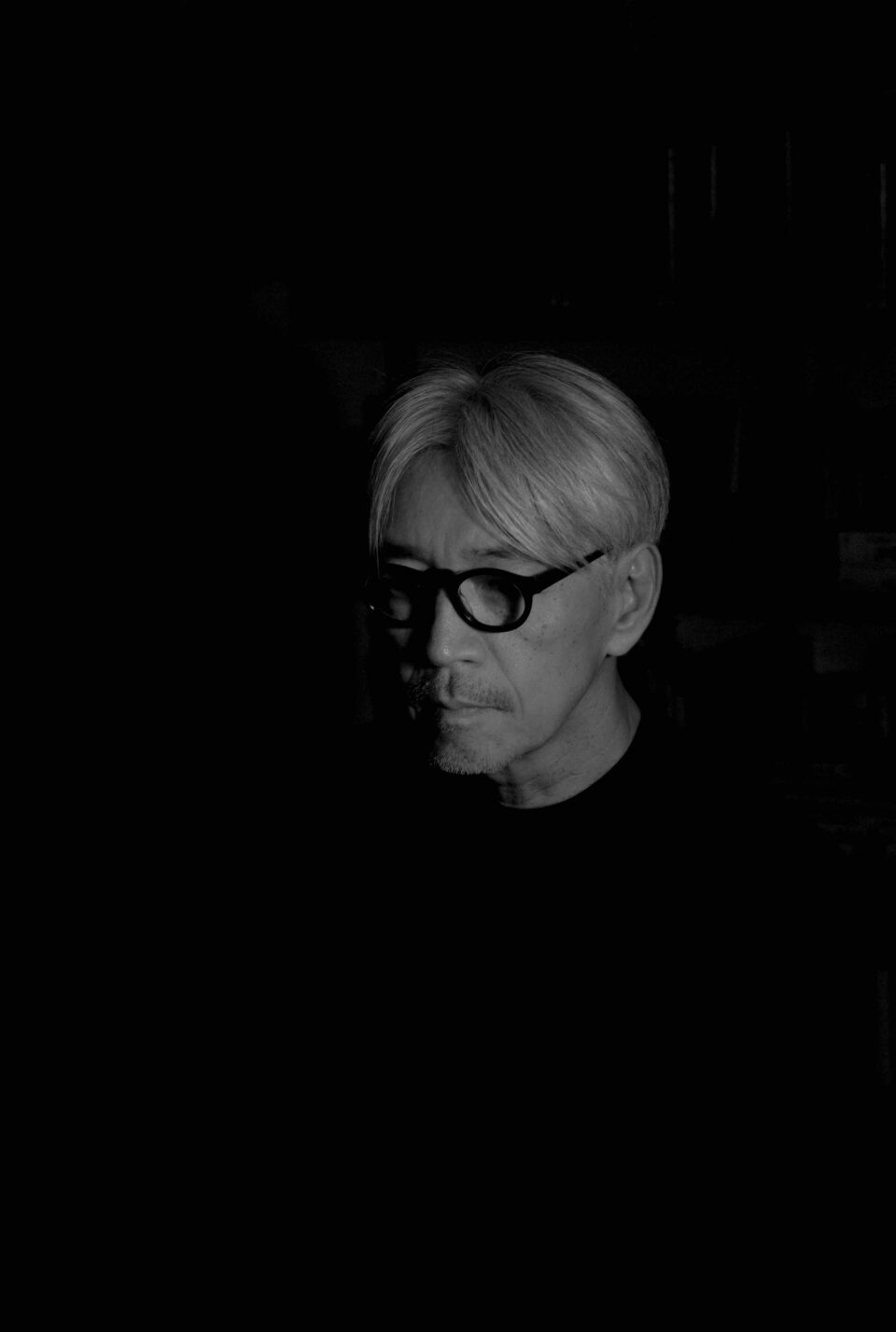
Since 2014, the composer has dealt with oropharyngeal cancer that went into remission by 2020, only to be diagnosed with rectal cancer in 2021 for which he’s undergoing treatment after a successful surgery (“From now on, I will be living alongside cancer,” wrote Sakamoto at the time. “But I am hoping to make music for a little while longer”). The Milan label head says the composer still chose to push ahead and release his deeply sonorous and pensively still 12. “There was no plan other than to document what it is he’s going through,” says Chamboredon. “Each track is a title and a date, and on this day, this is what he went through, and this is how he chose to express it. The answer to anyone’s question about his health is in the album. When you listen deeply to its ambience, you can hear his emotion and thoughts. You can hear how he’s feeling.”
As Sakamoto has gone through a recovery process from surgeries and rehabilitation, 12 has offered a sense of healing. “He was inspired to share music—this was the only way available to him that he could express himself to the world at large in his present state of mind,” says Chamboredon. Listening to 12, for Chamboredon, was a tearful experience, as it roused in the label executive deep emotions connected to mortality. “Along with the ambient sounds of the album, Sakamoto left in the sound of his heavy breathing on certain tracks. I understood what he meant by calling this a musical diary. And my first reaction was the feeling of awe, that such creativity could come through a dramatic part of one’s life.”
“I understood what he meant by calling 12 a musical diary. And my first reaction was the feeling of awe, that such creativity could come through a dramatic part of one’s life.”
Before the release of 12, Sakamoto streamed a pre-recorded live concert at the end of December, a piano-only showcase he stated “may be my last” due to his ongoing battles with stage-four cancer. Still upbeat, Sakamoto followed the live show with a comment about how playing many of the songs solo on the piano felt like a “new frontier” to him. “Through my interactions with him, I know that Ryuichi is very curious about new music, new forms,” says Chamboredon. “He’s very in-tune and fond of watching YouTube and checking out underground bands—he’s everlastingly curious.”
As for giving Sakamoto his flowers with the various-artist tribute album To the Moon and Back, the project was initiated by his manager with Chamboredon to lift the composer’s spirits while going through recovery. Milan made the entirety of Sakamoto’s catalog available to a handful of musicians the musician-composer admired and had previously recorded with for a series of “carte blanche” reinterpretations. “This was really a love letter from his best friends to Sakamoto,” says Chamboredon. “And Ryuichi was never aware of its recording, as we meant it as a surprise gift to him for his 70th birthday.”
For all of the names and collaborators of Sakamoto’s that stand out on To the Moon and Back that were brought in to add “contemporary relevance,” the usually reclusive David Sylvian’s newly “remodeled” take on “Grains (Sweet Paulownia Wood)” was this compilation’s grandest get. “David graciously accepted the invitation to contribute, and this is the first time he’s sung on any record in a very long time,” says Chamboredon. “His track came late in the process, but it was such a beautiful addition and reminds me of how organically this tribute album came together. It was the icing on the cake as the album was finished.”
As for what lies ahead with all things Sakamoto and Milan, along with composing and releasing the music to Hirotaka Adachi’s science fiction horror web anime series Exception in 2022, his next project is already set: to write the music for Palme d’Or–winning director Hirokazu Kore-eda’s forthcoming feature Monster (Kaibutsu).
“Ryuichi is very curious about new music, new forms. He’s very in-tune and fond of watching YouTube and checking out underground bands—he’s everlastingly curious.”
One very recent addition to Sakamoto’s schedule is yesterday’s announcement of KAGAMI, which will have its New York premiere this summer at The Shed in New York City. According to its representatives at the mixed-reality content production studio Tin Drum, the showcase will represent a new kind of concert, fusing dimensional moving photography with the real world to create a never-before-experienced mixed-media presentation. Though Sakamoto will not physically be in NYC, audiences wearing optically transparent devices can view the virtual Sakamoto performing on piano alongside dimensional art aligned with the music, directed by Todd Eckert of Tin Drum.
Reflecting on the collaboration, Sakamoto shared in a press release:
“There is, in reality, a virtual me.
This virtual me will not age, and will continue to play the piano for years, decades, centuries.
Will there be humans then?
Will the squids that will conquer the earth after humanity listen to me?
What will pianos be to them?
What about music?
Will there be empathy there?
Empathy that spans hundreds of thousands of years.
Ah, but the batteries won't last that long.”
Regarding additional solo music beyond 12, Chamboredon remains excitedly willing to be surprised. “Mine is a very different A&R role with Milan,” he says. “I’m a messenger. And working with Ryuichi Sakamoto is probably the most rewarding part of my career.” FL

